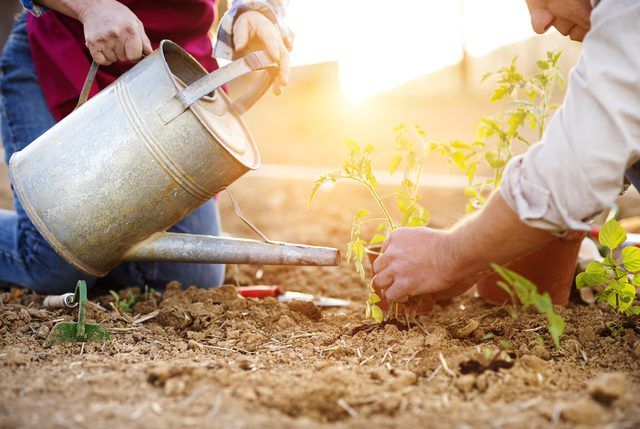Bulbs
Flower Basics
Flower Beds & Specialty Gardens
Flower Garden
Garden Furniture
Garden Gnomes
Garden Seeds
Garden Sheds
Garden Statues
Garden Tools & Supplies
Gardening Basics
Green & Organic
Groundcovers & Vines
Growing Annuals
Growing Basil
Growing Beans
Growing Berries
Growing Blueberries
Growing Cactus
Growing Corn
Growing Cotton
Growing Edibles
Growing Flowers
Growing Garlic
Growing Grapes
Growing Grass
Growing Herbs
Growing Jasmine
Growing Mint
Growing Mushrooms
Orchids
Growing Peanuts
Growing Perennials
Growing Plants
Growing Rosemary
Growing Roses
Growing Strawberries
Growing Sunflowers
Growing Thyme
Growing Tomatoes
Growing Tulips
Growing Vegetables
Herb Basics
Herb Garden
Indoor Growing
Landscaping Basics
Landscaping Patios
Landscaping Plants
Landscaping Shrubs
Landscaping Trees
Landscaping Walks & Pathways
Lawn Basics
Lawn Maintenance
Lawn Mowers
Lawn Ornaments
Lawn Planting
Lawn Tools
Outdoor Growing
Overall Landscape Planning
Pests, Weeds & Problems
Plant Basics
Rock Garden
Rose Garden
Shrubs
Soil
Specialty Gardens
Trees
Vegetable Garden
Yard Maintenance
Are Coffee Grounds Good for Tomato Plants?
While many claims about the benefits of coffee grounds for tomatoes are false, composted grounds are a nitrogen-rich fertilizer or soil amendment for tomatoes.

If you can't stop feeling slightly guilty about that beloved morning coffee, here's one more point in favor of drinking java: the spent coffee grounds are great for veggies in your garden. The rumors that fresh coffee grounds acidify the soil are just old spouses' tales, but if you add those grounds to your compost, things will quickly heat up.
Tomato plants (Solanum lycopersicum) benefit from coffee grounds but not, perhaps, in the ways you think. Spent coffee grounds do not make a suitable soil amendment or nitrogen-rich fertilizer unless and until they have been composted. It pays to look critically at every claim on this score in order to separate matter from myth.
Coffee Grounds Are Acidic: FALSE
The rumor that coffee is acidic is making the tour of gardening blogs, but laugh this one off. According to Oregon State University Extension, used coffee grounds are not acidic at all. All the acid in the grounds is water-soluble and is washed out of the grounds when you make the coffee.
Rather, coffee grounds are very close to neutral on the pH scale. They have a pH of between 6.5 and 6.8, with 7 being perfectly neutral. So the grounds themselves cannot be used as a soil amendment to make tomato beds.
Coffee Grounds Give Tomatoes a Nitrogen Boost: FALSE
You've probably seen blogs that advise you to sprinkle coffee grounds around the base of tomato plants as a nitrogen fertilizer. These claims are also untrue. Potting soil amended with a healthy dose of coffee grounds does not help veggies germinate better or grow faster. Rather, in tests at the GrassRoots Garden in Eugene, OR, this mix resulted in poor rates of germination and stunted growth. Veggies grown in unadulterated potting soil did far better.
The fact is, when coffee grounds are blended in with soil, the resulting mix offers less immediate nitrogen for the tomato plants, not more. The used grounds support the growth of microbes in the soil, and those microbes deplete the nitrogen supply. The grounds need to be composted before they supply nitrogen.
Tip
If you want to work in coffee grounds around tomato plants for nitrogen, mix in nitrogen fertilizer as well to provide nitrogen until the microbes have their way with the coffee grounds.
Coffee Grounds Heat up Compost: TRUE
One of the best places for used coffee grounds is in your compost pile. The grounds are about 2 percent nitrogen by volume and make an excellent substitute for manure, long the product of choice for heating up the pile. Coffee grounds have a carbon-to-nitrogen ration of about 20 to 1, about the same as manure. Many gardeners prefer not to use manure for fear of possible pathogens.
When 1 part of coffee grounds is mixed in with 3 parts compost, temperatures in the compost pile can climb to between 135 and 185 degrees Fahrenheit and stay there for weeks. This is hot enough long enough to kill many pathogens as well as weed and plant seeds in the pile.
Once the coffee is broken down into compost, it makes a good nitrogen-rich fertilizer for tomato plants. Layer 2 inches of the coffee-grounds compost over the root area of the tomato plants and work it in lightly.
Tip
When you are adding significant amounts of coffee grounds to compost, add in an equal amount of dry leaves and the same amount of green grass for best results.
Coffee Grounds Keep Snails out of Tomatoes: MAYBE
Many gardeners report that creating a circle of coffee grounds around plants repels snails and slugs, but the evidence remains anecdotal. Some say that the caffeine content harms the pests. Others say that they simply dislike the texture. The information is reported by such professional sites as the United States Botanical Garden, yet the claims lack scientific proof.
Warning
Never spread coffee grounds over the top of the soil like mulch and allow them to dry. They grounds compact as they dry and prevent water from sinking into the soil. Any coffee grounds you add must be worked in and kept moist to be of future benefit to the plants.